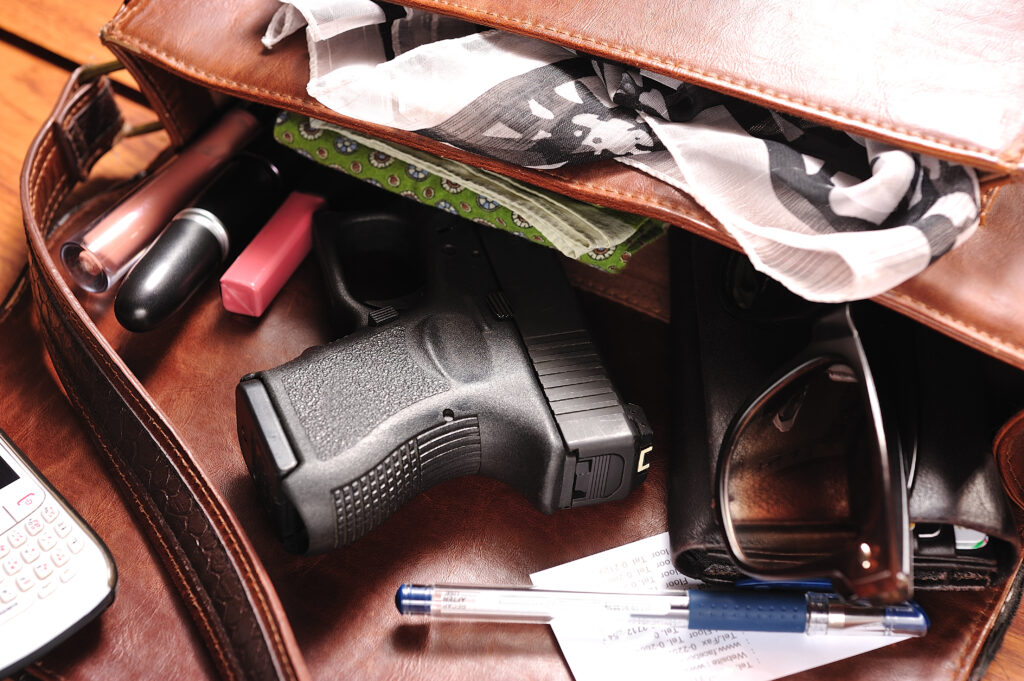
Earlier this year, the Ohio legislature signed passed Senate Bill 215, which Governor John Kasich signed into law, allowing for concealed carry without a permit within the state of Ohio.
The law prohibits officers from detaining, searching or seizing anyone who is otherwise law-abiding and in possession of a firearm. Additionally, gun owners will not be required to “promptly” notify law enforcement of a firearm in their vehicle during a traffic stop. The law now requires you to answer when asked by law enforcement about the presence of a firearm, provided you have not previously told any other officer at the scene.
The new legislation does not eliminate the Ohio concealed carry license; it merely removes the requirement to obtain a license in order to carry a concealed handgun. In terms of reciprocity, Ohio honors permits issued by any state or jurisdiction.
With people packing for summer travels, what does this mean for Ohioans who want to carry their firearms in other states? Unfortunately, even with the passage of Senate Bill 215, Ohioans are still required to obtain a CCW license if they plan to carry in another state that requires a license. While this may not be ideal, it is still better than not being able to carry at all. Read on to learn more about concealed carry reciprocity and how it works.
CONCEALED CARRY RECIPROCITY: WHAT DOES IT MEAN?
Concealed carry reciprocity is a term that refers to the ability to carry a concealed firearm in one state if you have a valid permit from another state. So, for example, if you have a valid CCW license from Ohio, you should be able to carry your firearm in a state like Michigan that also has concealed carry laws.
However, there are some states that do not recognize concealed carry permits from other states. This means that even if you have a valid CCW license from Ohio, you would not be able to carry your firearm in a state like Illinois that does not have reciprocity agreements with Ohio. It is important to know the concealed carry laws of the state you are planning to visit before you travel. The last thing you want is to get caught carrying a concealed firearm in a state where it is not legal.
PLAN AHEAD
There are some other things to keep in mind if you plan on carrying your firearm in another state.
First, even if the state you are visiting has concealed carry reciprocity with Ohio, you are still subject to the laws of that state. This means that you will need to know and follow the concealed carry laws of the state you are visiting, even if they are different from Ohio’s laws.
Second, some states have restrictions on which types of firearms you can carry. For example, New Jersey does not allow for the carrying of handguns unless you possess a New Jersey permit, so if you plan on carrying a handgun in New Jersey, you will need to check and make sure that it is legal to do so. (A recent Supreme Court ruling may soon have implications for the Garden State, as the Court struck down a New York law requiring people show they had “probable cause” to carry handguns in public; the ruling could impact New Jersey, which has long required people to have written certification for a “justifiable need” when applying for a concealed carry permit.)
Finally, some states require you to have a concealed carry permit even if you are only carrying your firearm for self-defense purposes. It is important to know the laws of the state you are visiting before you travel so that you can be sure to comply with them.
We hope that this blog post has been helpful in answering some of your questions about Ohio’s concealed carry reciprocity laws. We want to remind our readers that it is always important to know the laws of the state you are visiting before you travel so that you can be sure to comply with them. Stay safe and happy travels.
If you have any questions about Ohio’s concealed carry reciprocity laws or anything else related to firearms, please feel free to contact us. We are always happy to help!
To learn more about AimHi’s CCW training, including pricing and scheduling, visit the store, our CCW TRAINING PAGE or call 614-939-4867.